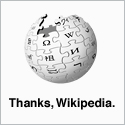Like Democracy Itself, It Needs Defending
If I could have all of my friends and family really understand one “technology” thing I am passionate about, it would probably be net neutrality. Net Neutrality is fundamental to the way the web has developed thus far, and I’m afraid that most people just don’t know or don’t care anymore to know when it is being threatened.
Internet access in America is actually quite poor compared to other developed countries. As mentioned in the following article, Finland has made 1mbps internet access a basic right of citizenship. We pay more money for slower access than most other developed countries. (Sounds like our health care system, eh?)
Tim Berners-Lee, the creator of the web, has written an article in Scientific American that I hope you’ll take a look at.
Like Democracy Itself, It Needs Defending: “Long Live the Web — An impassioned plea to actively support openness on the Web from Tim Berners-Lee.
‘The principle of universality allows the Web to work no matter what hardware, software, network connection or language you use and to handle information of all types and qualities. This principle guides Web technology design.
Technical standards that are open and royalty-free allow people to create applications without anyone’s permission or having to pay. Patents, and Web services that do not use the common URIs for addresses, limit innovation.
Threats to the Internet, such as companies or governments that interfere with or snoop on Internet traffic, compromise basic human network rights.
Web applications, linked data and other future Web technologies will flourish only if we protect the medium’s basic principles.’
(Via MetaFilter.)
Â

 Amazon.com
Amazon.com Apple
Apple Hosted by Dreamhost
Hosted by Dreamhost Mozilla.org
Mozilla.org NetNewsWire
NetNewsWire NPR
NPR